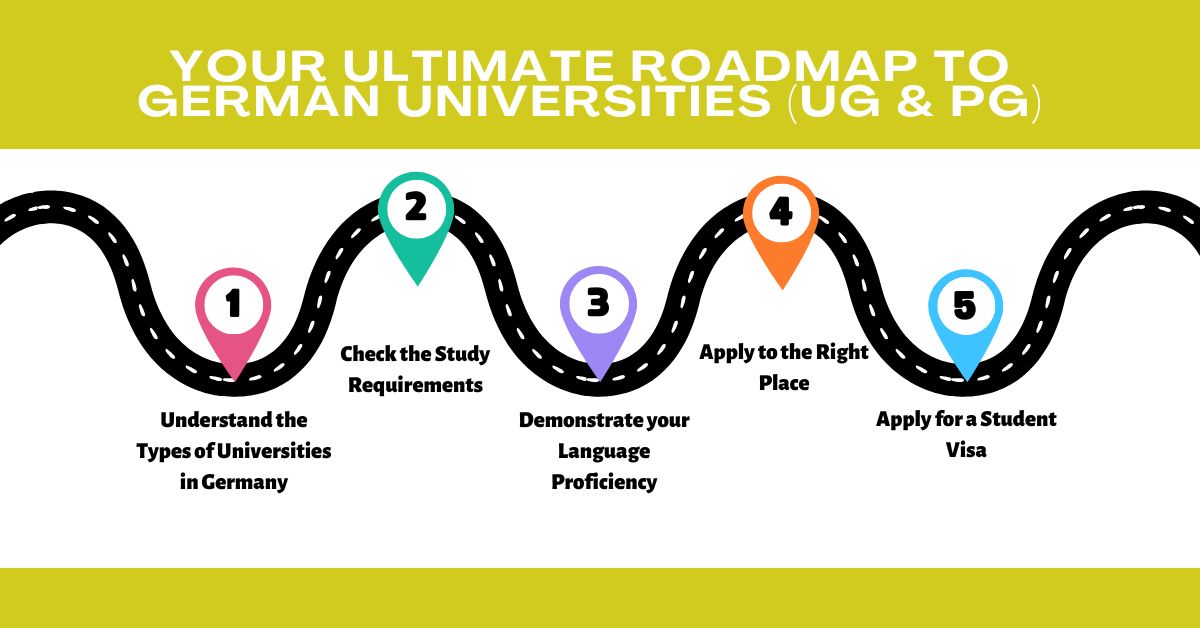Germany has become one of the most popular places for Indian students. Whether you want to study after school or after graduation, German universities offer top education at very low costs.
If you do not know where to begin, this simple step-by-step guide will help you move forward with ease.
1. Understand the Types of Universities in Germany
There are two types of universities in Germany:
Universities (Universität): The focus is on academic and theoretical knowledge; this type of university is suitable for research-intensive programmes such as engineering and sciences or the humanities.
Universities of Applied Science (Fachhochschulen): The focus is much more on practice and career-oriented learning; good examples are business, media or IT related fields.
Most undergraduate (UG) courses are delivered in German. But many postgraduate (PG) courses, especially related to science and business, now deliver in English.
2. Check the Study Requirements
- For UG courses:
You must have finished at least 13 years of study. This means an Indian student usually needs one year of college or a bridge course after school. Sometimes you can also get credit for the JEE Advanced scores.
- For post-graduate (PG) students:
You need to have a degree, 3 or 4 years in duration.
They expect you clase a good score on your degree. Generally around 65 to 70 at least.
Some courses require GRE or GMAT, but many don’t.
3. Demonstrate your Language Proficiency
For courses in English:
You need to take ELTS as 6.0 – 6.5 or TOEFL as 80 – 90.
4. Demonstrate your Sources of Funding
Even if public universities do not charge anything, living in Germany costs!
In order to have a student visa, you need to open a blocked account ,with about 11208 euros for a year which is around 10 lakh rupees. This demonstrates that you will be taking care of your expenses for your studies.
5. Apply to the Right Place
- Many universities use Uni Assist, a common online system to accept student forms.
- Others allow you to apply directly on their own websites.
- UG students can also check the DAAD site to see if they are eligible.
Make sure to apply 6 to 8 months before your course begins. Most classes start in September or October. Some may also begin in March or April.
6. Apply for a Student Visa
Following your acceptance letter:
1. Book an appointment at the German embassy in India.
2. Prepare all documents. You will need your offer letter, the proof of funds,, mark sheets, and language test scores.
The visa can take anywhere from 6 to 12 weeks, so don’t wait until the last minute
7. Prepare for Life in Germany
When you arrive, your first action steps will be:
1. Find accommodation
2. Register your home address
3. Open a local bank account
This can be overwhelming, and with TeamOverseas we make study in Germany for Indian Students easier ,assisting you in every day, as we do more than help you apply; we will help advise you from initial application through to your arrival in Germany.
If you are planning to study in Germany at the UG or PG level, proper planning is a huge difference maker. Let TeamOverseas help you make it happen.
